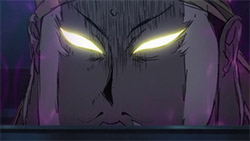 |
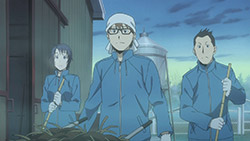 |
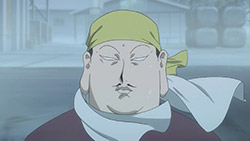 |
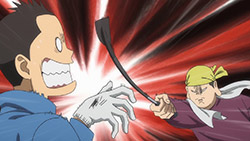 |
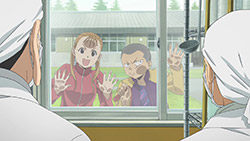 |
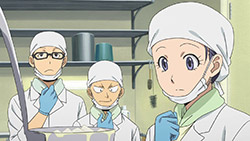 |
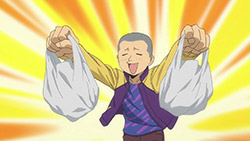 |
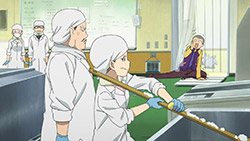 |
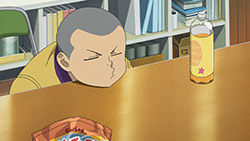 |
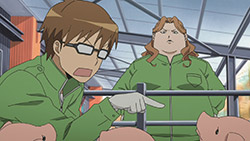 |
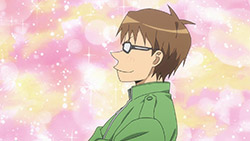 |
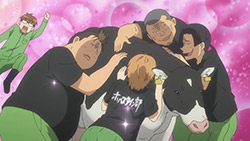 |
 |
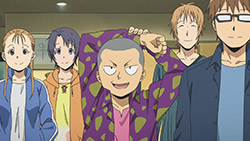 |
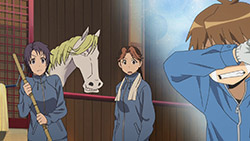 |
 |
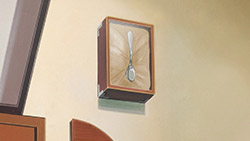 |
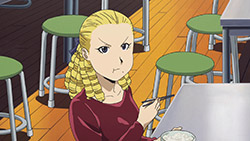 |
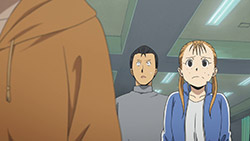 |
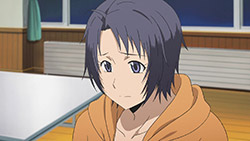 |
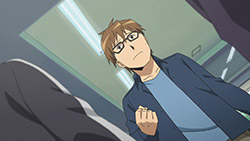 |
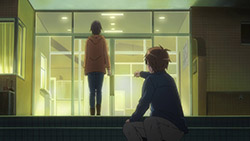 |
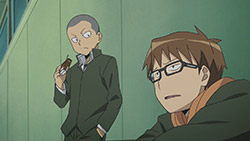 |
 |
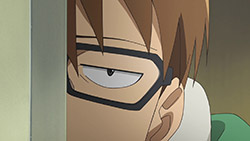 |
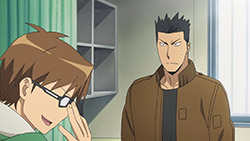 |
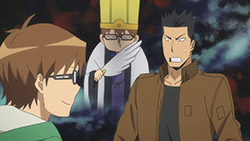 |
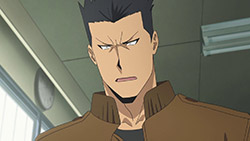 |
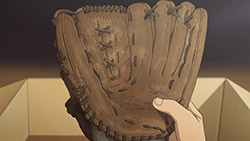 |
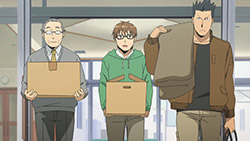 |
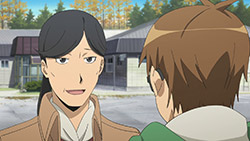 |
 |
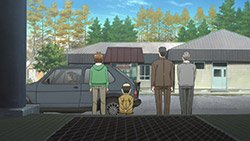 |
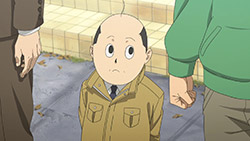 |
 |
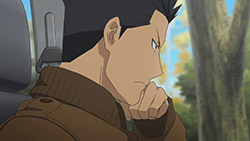 |
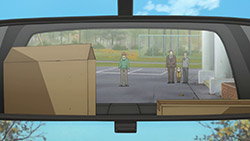 |
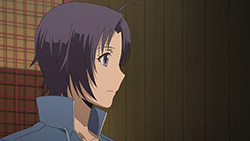 |
 |
「八軒、咆える」 (Hachiken, Hoeru)
“Hachiken Howls”
Nothing in fiction is quite so heartbreaking as that which is completely believable and realistic.
There are definitely times where I feel as if I’m doing a series a disservice by writing about it, because an episode does such a perfect job of speaking for itself. And that’s something of a specialty of Gin no Saji, which is so lacking in artifice and pretense that it manages to be emotionally profound and emotionally transparent at the same time. Even if the events of this episode were easy to predict, they packed a knockout punch just the same.
The first part of the episode did little to prepare us for what was to come. The mystery of Nakajima-sensei’s absence is solved – it was indeed related to the cheese tragedy he suffered (that, too, was predicted here last week). This is classic slice-of-life GnS – lots of interesting information about cheese making, repeated jokes at Tokiwa’s expense, some light-hearted bovine fanservice (my favorite moment came when Hachiken cried “My daughter!”; when imagining the dairy calf he’s been asked to name being ogled and fondled by Tokiwa and the Holstein Club). I was wondering why Nakajima-sensei was so concerned with what everyone had eaten over the last 24 hours – turns out Natto has bacteria so potent that even the breath of someone who’s eaten it can contaminate the cheese process (it’s also utterly revolting in every way).
This segment also brings us the first overt reference to the titular “Gin no Saji” in quite some time – a reflection on the fact that agricultural kids will never starve because they can produce the food they need to survive. It’s a very different take on the term than we’re used to, and the timing is no coincidence leading as it does into Komaba’s story. It’s Ayame – someone who represents the image of the silver spoon most people have in their heads – who breaks the news to Hachiken and the others (though not Mikage, of course) – Komaba’s farm is going bankrupt, and he’s not coming back to school.
This is a hard, cruel slice of agricultural life, and if you’re expecting the blow to be softened by sentiment and trope-powered plot twists, you’ll be disappointed. This sort of thing really does happen all the time, and certainly in the harrowing financial world of the modern family farm. In this case it’s a matter of bad timing – Komaba’s father borrowed extensively to expand the business just before he died, too soon to reap any benefits from the money spent. The upshot is that Komaba feels he has no choice but to quit school – and baseball – and get a job to help repay the loan. He has a mother and two little sisters to think about, and an important additional incentive besides.
As with everything in Gin no Saji, this development is important not just in itself but for what it means to Hachiken. His natural instinct, always, it to help. He’s the fixer – the guy who always steps in whenever something extra (a pizza oven, expertise in planning, a home for a stray dog or love for a doomed piglet) is needed. But this isn’t something Hachiken can fix – this is just a hard, painful thing that simply is. And accepting that cuts against everything Hachiken believes in, his very nature. Even worse is that both Komaba and Mikage chose to keep this from him – and even now, both express concern for the impact it’ll have on him. There’s something quintessentially Japanese in this scenario of everyone wanting to spare others the burden of sharing their pain, an element of what makes the mindset of this culture so admirable and irritating at the same time. By expressing concern for Hachiken – absolutely genuine concern – when they should be worried about themselves, Komaba and Mikage are actually making him feel much worse.
There’s another element that makes this story even more painful, and it’s revealed when Hachiken foils Komaba’s plan to sneak into his room and gather his belongings while everyone is in class by faking sick (he suspected the truth) and catching Komaba in the act. Komaba’s father got Mikage’s father to co-sign the massive loan he took, which means her family is going to be dragged into the financial mire if the loan can’t be paid back. There are many valid reasons for what Komaba is doing, but that doesn’t make the fact that he’s saying goodbye to all of his dreams any less painful. It’s equally heartbreaking watching Hachiken hopelessly struggle for answers and rage at the situation, and watching Komaba express nothing as he fatalistically accepts the end of his dreams. “Yeah, I’ve lost them all… Baseball, taking over the business, everything.” And most painful of all is his final, calm “It can’t be helped.”
That’s real, genuine heartbreak there – not an ounce of push-button melodrama, just real-world injustice. “It can’t be helped” – these words are anathema to Hachiken, but they too are part of the lessons he needs to learn at Ezonoo. Mikage gently reminds him of the key to not getting hurt too badly when you fall off a horse – “Just let go” – but that, too cuts against his very nature. This is continuing education in the truest sense – a reminder for Hachiken that whatever his problems, he needs to appreciate how much he has because most people aren’t nearly so lucky. Coming-of-age drama just doesn’t get much better than this – brutal honesty, absolute believability, unvarnished truth. It’s a beautiful, terrible sadness – and that is a necessary part of growing up. It’s just that we almost never see it portrayed this simply and profoundly in anime.

It’s a credit to the show/manga that by the end I was only just disagreeing with Hachiken despite the obvious inability he has to do anything meaningful to help.
Great show this is. Look forward to next week’s.
Aaaaaaaaaaaaaaaaaand depressingly dream-crushing reality has just hit this week’s episode of Space Brothers too. Somehow it’s fitting that two great shows are going through their toughest arcs at the same time.
It must be painful for Hachiken to see Komaba give up all his dreams, doubled by the guilt that Hachiken himself doesn’t even have a dream to pursue.
As someone who has been following the manga since before the anime aired, I can say that it never gets any easier reading/watching this arc. It cuts really deep, and for some of us it might hit a little too close to home (thankfully, it’s not the case for my family). It’s painful because it’s believable, and a very realistic turn of events. And what’s worse, though all the hints were there, you’d never expect something quite like this to happen.
This arc really hit me in the manga because I’m so used to everything having a way to fix itself in what I read that something so painfully realistic (losing a business and everything else in the process happened to my family) that it left me stunned.
Such a great series
From what I have learned in the manga about the ‘Silver Spoon’ concept, it has nothing to do with the commonly applied meaning of ‘inherited wealth’ as you seem to have suggested with Ayame, which is explained explained in the latest chapters that I will not spoiler.
The original linguistic usage of the expression (“Born with a silver spoon in their mouth”) certainly applies to Ayame as we’ve been introduced to her – Hachiken even uses the Japanese equivalent (“And… there’s an okanemochi right there.”). It clearly means something different in the Ezonoo context, as I stated quite clearly in the post.
The Principal explains the etymology of “Silver Spoons” recently in the manga. It’s all info you can read in Wikipedia with a little more embellishment, so I don’t think it’s particularly spoilerific. The end meaning is still the same and definitely applies to Ayame.
it’s truly a sad day….
shit hits the fans
As another manga reader I was well aware of what was coming, but I still hit me hard. Seeing this animated added to the emotions the story generated in me. The authors ability to mix humor with drama is extraordinarily good. Neither detracts from the other. Even Ayame came across as a normal human being instead of her usual ojou-sama annoying personality.
Enzo, your point about the Japanese stoicism was one I hadn’t really considered, but it’s also one that is true of most farm families. They come from a background where taking care of things and dealing with failures is just part of farm life. I doubt if you last long as a farmer if you’re a whiner.
Hachiken has a real need to share things at an emotional level. Given his parents that’s understandable. His father is cold, judgmental and distant and his mother is a rather submissive personality. He’s had to deal with his emotional pain on his own and he can’t stand to see it happen to others who do have people (such as himself) who are willing to share it and try to help. I don’t think Mikage and the others understand how much they’ve come to mean to him.
I do object to the director cutting the show off just at that point. That was just cruel to make us wait another week to see what happens.
I think it’s not only that Hachiken is kind-hearted and emphathetic, but that when he sees Komaba situation and everyone’s reaction to it, it’s like seeing his worst fears come to life: that no matter how much you struggle and work hard, you’re going to end up with nothing but wasted effort. Like how he worked hard to study and cram to his own suffering, so he empathizes with people like Komaba and Mikage where it feels like you can’t do anything against external forces ruining things for you.
I’m looking forward to next week’s episode; that cliffhanger might show that he might muster up something really cool for his friends and himself. I think it speaks well of both Hachi and Ayame- both of whom have that kind of embody the silver spoon sort of privileges that they have- to know how serious finances impact their peers to the point where Ayame drops the Ojou schtick to deliver the news as respectfully as she can to Komaba’s friends (even though she tried to nefariously squeeze in on Komaba’s spot only to be thwarted by having to retake the entrance exam that she failed in the first place).
In lighter news: the return of Cheese Buddha feels my heart with peace.
Don’t worry, Enzo, you’re not doing GnS a disservice at all. That was a beautiful write up for a beautiful episode.
It was such a great moment seeing Hachiken argue with himself at the end about how he shouldn’t get involved, and then grab Mikage’s hand. Ohhhh my heart.
this season has been really heavy on the topic of dreams and future aspirations. Hachiken, whose dreams he hasn’t yet discovered. Mikage, whose dreams she’s too afraid to stand up for. Aikawa, whose dreams are faced with a personal obstacle. Tamako, whose dreams she’s going full force at. And finally Komaba, whose dreams have been utterly destroyed. There’s a lot to take in here…